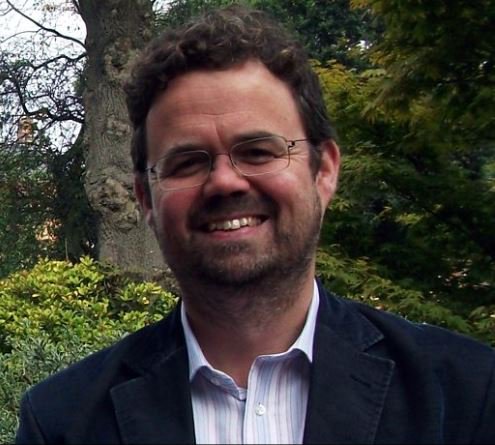Additional returns on Protestant efforts to transform culture:
Taken together, Stewart, Sutton, and Wacker offer important new perspectives on the means by which America was born again. America has become a holy nation, but those who are most responsible for it so often refuse to recognize it. But these books also suggest the extent to which evangelicalism itself has been born again. In the course of the past century, even as its cultural power steadily increased, the “old-time religion” has been revolutionized. Across the board, the doctrinal and political specifics that once shaped popular Protestantism have given way to what evangelical-turned-Catholic sociologist Christian Smith has described as a “moralistic therapeutic deism.” This religious style mimics the structure of evangelical theology while advancing only a few of its ethical demands.
Investigating this trend, Todd M. Brenneman’s Homespun Gospel: The Triumph of Sentimentality in Contemporary American Evangelicalism (2014) analyses the rhetorical and media strategies of several best-selling evangelical ministers. Despite some differences, Brenneman argues, Max Lucado, Joel Osteen, Rick Warren, Joyce Meyer, and other celebrity preachers share a common exhortative style. Their pitch mixes ideas that are often atypical of the evangelical theological heritage in a mélange of unreason and sentiment. In their presentations, theology is reduced to clichés that reiterate the image of a “fatherly God desperately in love with his children…a God who is infatuated with human beings.” . . .
As the recent books discussed here suggest, the religious and political divisions that have so often beset born-again Protestants have become increasingly pronounced. In this era of “designer” religion, as believers become increasingly divided in their religious and political convictions, their moments of common purpose become ever more difficult to identify. Evangelical religion has won America at the price of its own evisceration. Contemporary evangelicals might have much more in common with those associated with “the heretical origins of the American republic” than they could ever have imagined. They tried to change the nation by re-inhabiting the zeitgeist, but the zeitgeist swallowed them in mid-transformation. For the evangelicals who made it all possible, the redemption of America has come at enormous cost.
Too bad evangelicals didn’t learn from Roman Catholics about the danger of identifying faith with place:
The West, still primitive, discovered through the Crusades the intensive culture, the accumulated wealth, the fixed civilized traditions of the Greek Empire and of the town of Constantinople. It discovered also, in a vivid new experience, the East. The mere covering of so much land, the mere seeing of so many sights by a million men expanded and broke the walls of the mind of the Dark Ages. The Mediterranean came to be covered with Christian ships, and took its place again with fertile rapidity as the great highway of exchange.
Europe awoke. All architecture is transformed, and that quite new thing, the Gothic, arises. The conception of representative assembly, monastic in origin, fruitfully transferred to civilian soil, appears in the institutions of Christendom. The vernacular languages appear, and with them the beginnings of our literature: the Tuscan, the Castilian, the Langue d’Oc, the Northern French, somewhat later the English. Even the primitive tongues that had always kept their vitality from beyond recorded time, the Celtic and the German [Footnote: I mean, in neither of the groups of tongues as we first find them recorded, for by that time each—especially the German—was full of Southern words borrowed from the Empire; but the original stocks which survived side by side with this new vocabulary. For instance, our first knowledge of Teutonic dialect is of the eighth century (the so-called Early Gothic is a fraud) but even then quite half the words or more are truly German, apparently unaffected by the Imperial laws and speech.] begin to take on new creative powers and to produce a new literature. That fundamental institution of Europe, the University, arises; first in Italy, immediately after in Paris—which last becomes the type and centre of the scheme.
The central civil governments begin to correspond to their natural limits, the English monarchy is fixed first, the French kingdom is coalescing, the Spanish regions will soon combine. The Middle Ages are born.
The flower of that capital experiment in the history of our race was the thirteenth century. Edward I. of England, St. Louis of France, Pope Innocent III., were the types of its governing manhood. Everywhere Europe was renewed; there were new white walls around the cities, new white Gothic churches in the towns, new castles on the hills, law codified, the classics rediscovered, the questions of philosophy sprung to activity and producing in their first vigor, as it were, the summit of expository power in St. Thomas, surely the strongest, the most virile, intellect which our European blood has given to the world.
Two notes mark the time for anyone who is acquainted with its building, its letters, and its wars: a note of youth, and a note of content. Europe was imagined to be at last achieved, and that ineradicable dream of a permanent and satisfactory society seemed to have taken on flesh and to have come to live forever among Christian men.
No such permanence and no such good is permitted to humanity; and the great experiment, as I have called it, was destined to fail.
While it flourished, all that is specially characteristic of our European descent and nature stood visibly present in the daily life, and in the large, as in the small, institutions, of Europe.
Our property in land and instruments was well divided among many or all; we produced the peasant; we maintained the independent craftsman; we founded coöperative industry. In arms that military type arose which lives upon the virtues proper to arms and detests the vices arms may breed. Above all, an intense and living appetite for truth, a perception of reality, invigorated these generations. They saw what was before them, they called things by their names. Never was political or social formula less divorced from fact, never was the mass of our civilization better welded—and in spite of all this the thing did not endure.





